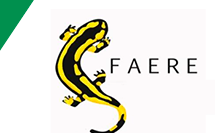This paper shows that the Intergovernmental Panel on Climate Change (IPCC) can take advantage of her position over the report of climate knowledge to mitigate the inefficiency of the level of green house gases emissions in international environmental agreements (IEA). I model an IEA as a game of contribution to a public bad. In reporting confidence levels over the theories that could predict the impact of emissions, the IPCC plays a cheap talk game with IEA participants. The presence of ambiguity over these theories allows to account for a unique sequential equilibrium in the game under standard assumptions. This result sheds new light upon the role of scientific advising in uncertainty, supporting the view that it can contribute to restore economic efficiency.




